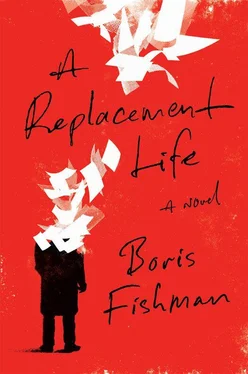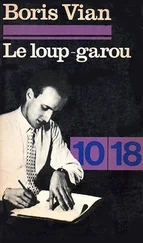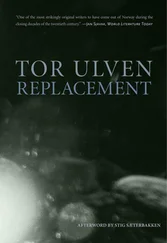“I would say we had success with this idea,” Beau said, mopping his mouth. “My niece said to me last fall — she’s just graduated college, she admires what I do—‘Uncle Beau, should I go to journalism school?’ And you know what I said? I said, ‘Come work at Century for a year. Just like journalism school, except you get paid for it.’” Several editors laughed lightly, Arch Dyson baring his fangs like a beached seal.
“All right,” Beau said. He squinted at the page in his hands and read out loud: “‘Fred Duncan is an urban explorer.’”
Fred Duncan scaled and spelunked municipal constructions. He once hiked the D line, tunnels included, from Coney Island to its terminus in the Bronx. Next up was Ulysses S. Grant in Morningside Heights. The Grant mausoleum — a mere 165 feet — would be far beneath Duncan’s highest achievement (the Municipal Building, at 580 feet) but its gray limestone walls were smoother than anything he had summited. “You try to go up the blank face of a wall,” Duncan said testily when Slava asked on the phone why the tomb was a target. Slava decided not to point out that it was actually administered by the National Park Service.
Morningside Heights had been leafy and serene, just like the Upper East Side, except here blacks and Dominicans also wandered. Duncan looked about fifty, a clump of seawater-gray hair gathered at the base of his scalp, a bald nest in the middle. He bristled with ropes and carabiners. Peter Devicki was journalistic in a spiffy checked blazer.
“Glad I wore this ,” Peter said, holding up the collar. The ham. Slava considered him hatefully: the indifferently barbered thatch of ginger hair; the bumpy nose; the mouth slightly ajar; faint whiskers sprouting across the unplanted field of his pale, splotchy face.
“Try wearing thirty pounds of equipment,” Duncan said, and spat. Brackets of nicotine separated his teeth. He nodded at the mausoleum, two hundred yards away. “Here’s what you need to know,” he said. “I don’t know if one of you wants to write it down and the other’s holding his hand?”
“It’s an experiment,” Peter alerted him brightly.
“Largest mausoleum in North America,” Duncan said. “Never been scaled, far as I know. Not — repeat, not —illegal. Not clearly, anyway. Not that that fazes me. Half the judges in this town know who I am. Ready?” The young men nodded and withdrew two crisp, slim reporter’s notebooks. Duncan, his crotch cinched like an infant’s, jangled off toward the mausoleum.
Slava reviewed the notes he had made the previous evening. A history of the mausoleum and its occupant; a New York Post story about Duncan’s childhood riding subway cars in the Bronx; the equipment Duncan said he was going to use. (Beau liked when you mentioned the brands: It drummed up advertising.) The two of them watched Duncan begin his ascent.
So did many others. They pointed, they shrugged, they kept going. Even an iridescent pigeon at Slava’s feet — as a flying creature, arguably prone to curiosity about the gentleman invading its airspace — was more concerned with a triangle of pizza on the ground, approaching it as shyly as a girl at a dance.
Slava marveled, in Russian. There had been a famous mausoleum in the Soviet Union, too. Lenin’s Tomb in Red Square. The Gelmans had gone there en famille while they were in Moscow to fix immigration papers. Leaving Russia or not, it seemed heretical to visit the capital without visiting Grandfather Lenin, and only Slava’s grandfather resented having to waste time on “that dead dick.”
They had waited in a cold, prickly rain. Only a small number of mourners could file through at a time, and no consideration had been given to those who would have to wait outside for their glimpse of the Great Teacher. When the Gelmans finally reached the interior, Slava’s chest rattling in dress rehearsal for a cold and Grandmother hissing about the injustice, Slava was impressed to find himself completely unfrightened by the dead dick inside the glass. Lenin was as tiny as an old grandfather, his waxy lips on the precipice of a joke only he understood. It was the militsionery guarding him who were frightening. Slava had expected them to be young, crisp, and clean-skinned, but they were heavy men with slow, drunk eyes ringed by ripples of fat.
On the opposite side of the glass encasement, a young boy — Slava’s age but with straw-yellow hair and limpid blue eyes — also studied the dead man’s face. Slava had slipped his hand free from his mother’s to demonstrate his adultness to the man under the glass and noted with pitying sympathy that the other boy still clung to his.
Grandfather had said Slavs were vicious and vulgar, but here was Slava’s Slav twin and Slava loved him. They understood each other. So when, drawing nearer to Lenin, the other boy lifted his finger, Slava knew as if the hand were his own that he meant merely to point out Lenin’s curious expression to his mother and not to touch the glass, as the nearest policeman assumed, his eyes irradiating with purpose and his nightstick slicing down from his shoulder. Like Slava, the boy had small, easily retractable fingers. The baton sliced through empty air and came to rest in the policeman’s own thigh. He wailed. Slava nearly slapped his hands together. “Scum!” the boy’s mother cried at the policeman. It was as if she had spoken out loud the patter of objection that had been coming from Slava’s grandmother all morning. “ Tikho tikho tikho tikho, ” Grandfather whispered toward the commotion on the other side of the tomb. Quiet quiet quiet quiet. Grandfather never went at the law directly, but he couldn’t resist making himself useful.
Compare Ulysses S. Grant, as considered from the freshly paved squares of Riverside Park: a fall-down failure across the professions — farmer, real estate man, passed over for county engineer — before stumbling onto the battlefield and inducing his country to remain in one piece, like a bullheaded mother. However, those early disasters endeared his late-inning renaissance to his countrymen only more. Meanwhile, Lenin’s syphilis was a state secret, his childlessness with his wife, Krupskaya, supposedly the result of his unstraying devotion to the Revolution. You could not touch the man’s sarcophagus without corporal punishment. In America, however, love did not require nightsticks.
When Slava remembered Duncan, he was back on the ground, barking impressions as Peter scrawled in his notebook, nodding richly. Slava considered the blankness of his. He moved over and tried to record some of what Duncan was saying, but his mind kept wandering.
It cannot be said that, that evening, Slava obeyed every bit of guidance he had wrung from his exegesis of Century ’s glimpse into Avery Coulter’s entrepreneurial soul. It wasn’t hard at all to start with a scene, but by the time Slava remembered the rest of the rules, he was midway done and adrift in a far sea of essayistic remembrance. Slava shrugged: Such is the impulsive tyranny of the artistic heart. Here was the memoir they wanted! Beau hadn’t specified the format; why not an essay. With a little patriotism shining from its heart — that couldn’t hurt.
Now, in the office, Beau positioned a pair of tortoiseshell glasses on the bridge of his nose. “So, what about these two?” he said.
They didn’t talk long. With each comment, Slava slipped lower in his chair. The thirty-four editorial staffers present that day, not counting Peter Devicki and Slava Gelman — fourteen Junior Staffers, eight editors, and the twelve staff writers who were in that day — voted. There were no abstentions. When Beau called out “Piece number one,” rereading its opening line, thirty-two hands rose into the air. When Beau followed with “Piece number two”—why was it necessary, for God’s sake — the two remaining rose: Arianna Bock, one other fool. As Slava’s eyes swept across Peter Devicki, something more terrible than thirty-two hands against began to take place. No, Peter, no, Slava pleaded silently, but in this, too, Peter was going to humiliate him, his hand rising to join two others to vote for Slava.
Читать дальше











